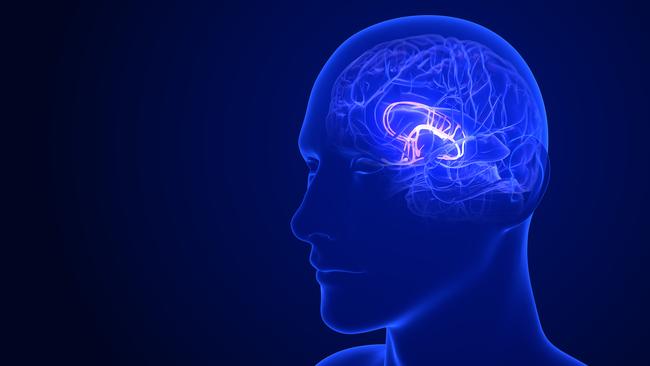Obese people have differently shaped brains, scientists find
Landmark research by Cambridge University scientists may explain why people who are overweight are less likely to feel full after eating.

Obese people’s brains are shaped differently and this might explain why they are less likely to feel full after eating, landmark research has revealed.
Cambridge University scientists found that the hypothalamus, a key region that acts as the brain’s “appetite control centre”, is significantly larger in people who are overweight.
They suggested that an unhealthy diet may cause this area of the brain to become inflamed, leading to the structural changes which are visible on brain scans. This inflammation in turn may “dysregulate” the natural mechanisms responsible for keeping body weight stable, making it harder for people with obesity to control their hunger or follow a diet.
The study, published in the journal Neuroimage: Clinical, used an AI algorithm to analyse the MRI brain scans of 1,351 young adults who were a range of different weights. The team found that the overall volume of the hypothalamus structure in the brain was significantly larger in people who were overweight and obese.
Overall, on average, the higher someone’s body-mass index (BMI), the greater the volume of their hypothalamus. The hypothalamus is about the size of an almond, and plays an important role in controlling appetite through managing the release of hormones telling us if we are hungry or full.

The study authors said they could not be sure whether excess body weight caused the hypothalamus to grow in size, or whether people with a larger hypothalamus were predisposed to eat more. The two might also both interact to increase the other, causing a feedback loop.
Studies in animals show that a high-fat diet causes inflammation of the hypothalamus, which in turn prompts insulin resistance and obesity. This inflammation can raise the threshold at which animals are full, meaning they have to eat more food than usual to feel full.
The lead author, Dr Stephanie Brown, from Cambridge’s department of psychiatry, said: “If what we see in mice is the case in people, then eating a high-fat diet could trigger inflammation of our appetite-control centre. Over time, this would change our ability to tell when we’ve eaten enough and to how our body processes blood sugar, leading us to put on weight.”
The study said that an unhealthy diet appeared to cause inflammation in the brain. This inflammation might cause the hypothalamus to enlarge because the body reacted by increasing the size of the brain’s specialist immune cells, known as glia.
Brown added: “Although we know the hypothalamus is important for determining how much we eat, we actually have very little direct information about this brain region in living humans. That’s because it is very small and hard to make out on traditional MRI brain scans.” Scientists said that further research into the role of the hypothalamus was vital to help understand obesity, opening the way for new treatments.
Two thirds of adults in Britain are either obese or overweight, and obesity costs the NHS billions of pounds a year, because of rising levels of related diseases such as type 2 diabetes and heart disease.
Professor Paul Fletcher, the study’s senior author, said: “The last two decades have given us important insights about appetite control and how it may be altered in obesity . . . Our hope is that by taking this new approach to analysing brain scans in large datasets, we can further extend this work into humans, ultimately relating these subtle structural brain findings to changes in appetite and eating and generating a more comprehensive understanding of obesity.”
The Times







To join the conversation, please log in. Don't have an account? Register
Join the conversation, you are commenting as Logout